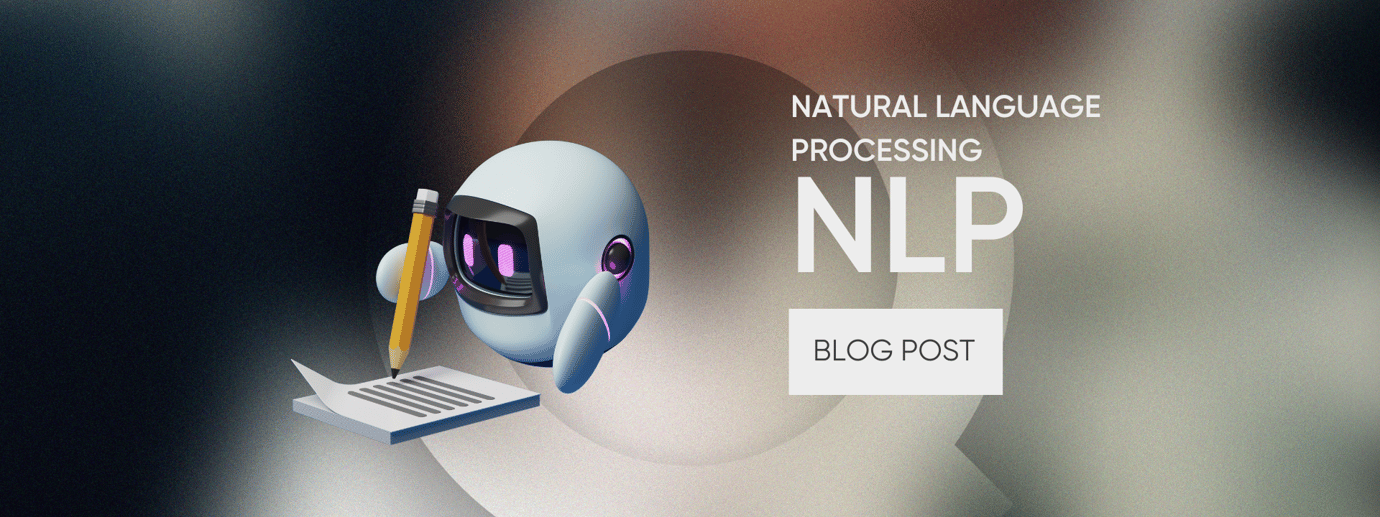Laurie P.

[Key Points Overview]
[Top Takeaways]
[Conclusion] NLP is an essential tool for businesses to decode vast amounts of data, providing a deeper understanding of consumer needs and behaviors. With the right strategy and tools, NLP can significantly enhance business success and competitive edge.
Have you been wondering about Natural Language Processing (NLP) and its significance in the business world? This guide introduces you to NLP, explaining its functions, applications, and some key pointers to get started. It's an essential resource for anyone looking to grasp NLP's importance for businesses.
2022: 5 Steps to Building a Successful Analytics Program
What is Natural Language Processing?
The history of Natural Language Processing dates back to the early 1900s with a Swiss linguistics professor named Ferdinand de Saussure. Between 1906 and 1911, Professor Saussure conducted three courses at the University of Geneva on "Language as a Science". He introduced an approach where languages were viewed as "systems". Within these systems, sounds represent concepts. These concepts can shift in meaning depending on the context. Meaning, according to Saussure, is constructed within the language, based on the relationships and distinctions between its components.
By 1950, Alan Turing had written a paper proposing a test for a "thinking" machine – a machine that could imitate human behaviors so convincingly that the differences were indiscernible. This work laid the foundation for the concepts of Artificial Intelligence (AI) and Natural Language Processing (NLP), ultimately influencing the evolution of computing.
Today, NLP is a technology that deciphers, deeply parses, and grammatically analyzes data. It processes, normalizes, and organizes conversations, making them analyzable. On March 23, 2021, the global conversation around NLP gained traction when Google released an update related to NLP, highlighting its growing importance in the realm of AI.
NLP can process every post that consumers upload, extracting insights like sentiment (positive or negative), emotions, behaviors, names of people, and other relevant data, and then indexes these posts for reference.
How does Natural Language Processing Work?
While many NLP technologies primarily analyze sentence tone, advanced NLP engines can discern sentiment for each subject within a sentence. For instance, consider these two statements about the iPhone:
To a human reader, it's evident that the first statement is negative towards the iPhone, while the second is positive. An effective NLP system can automatically understand these nuances, ensuring accurate data extraction and sentiment analysis.
Moreover, NLP:
Accuracy is paramount in data analytics. It’s essential for businesses to know the basis of the sentiments their tools generate.
What does Natural Language Processing Extract From Posts?
NLP offers insights into customer preferences, passions, and behaviors, crucial for brands to drive customer experience initiatives and make informed business decisions.
Insights
An insight reflects what authors communicate about a brand. Insights can be:
Sentiment
Sentiment reveals how authors feel about a brand or specific insights. NLP technology identifies positive or negative sentiments about objects in a statement. When humans assess mentions, typically only a third of brand mentions convey clear sentiment towards that brand.
Metrics
Metrics provide counts, scores, and values to analyze social media content. Some metrics include:
Where Can Companies Use Natural Language Processing?
NLP is integral to every strategic initiative in businesses. Co-founders of 113 Industries, Razi Imam and Anupam Singh, emphasize that robust social data aids in identifying behavioral conversations and consumer preferences. NLP can uncover reasons behind consumer behaviors, revealing valuable insights like compensating behaviors – the workarounds consumers employ when a product doesn't meet their needs. These insights are invaluable for product development.
For instance, IKEA has keenly observed their customers, leading to an entire movement of IKEA enthusiasts sharing their #IKEAhacks online.
Tips to Get Started with Natural Language Processing
NLP is a potent tool for deep insights into customer behavior. If you’re new to NLP, here are some pointers:
In conclusion, NLP is a vital tool for businesses aiming to decode vast amounts of data, enabling brands to truly understand consumer needs. With the right strategy and tools, any business can leverage NLP's power for success.